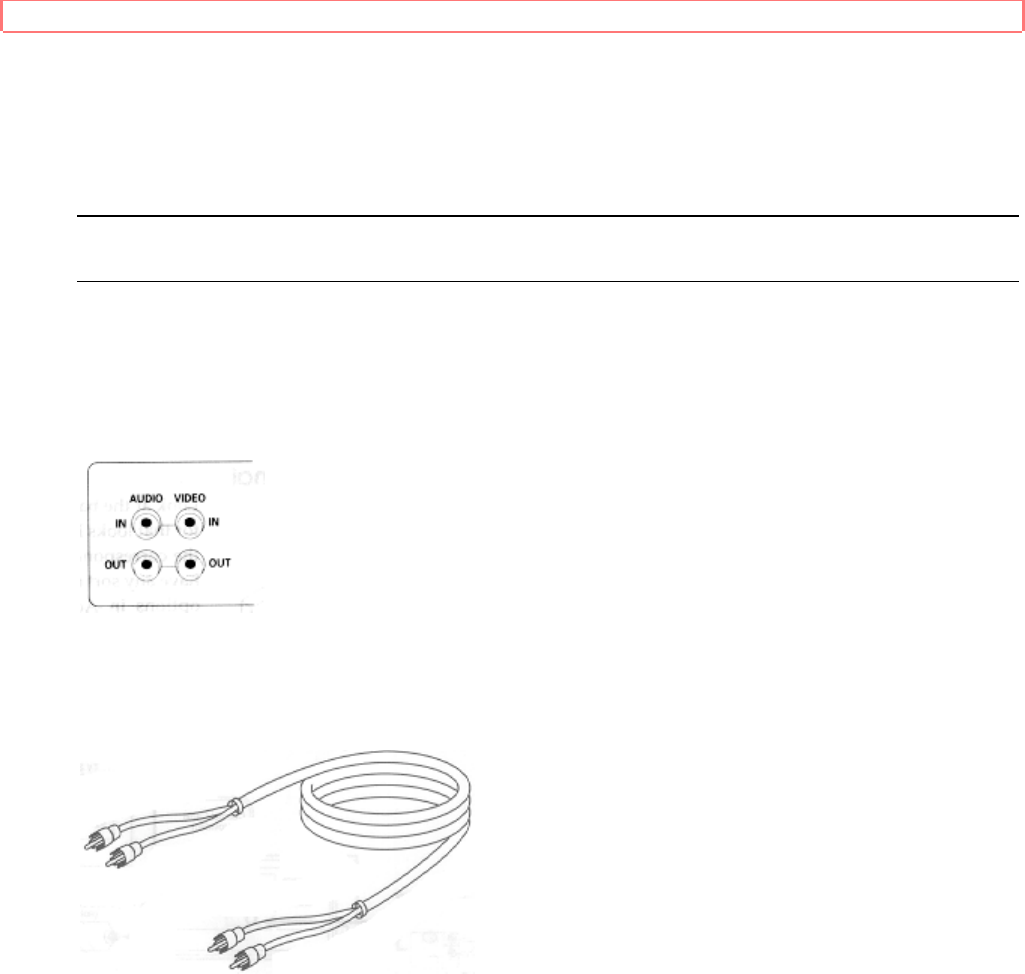
Getting Started
We will guide you through this process. But first, turn the TV and the VCR around so
you are looking at their backs. Note the various input and output receptacles, their
shapes, and how they are labeled. Then read through the rest of this hookup section
before proceeding to an actual hookup.
DO NOT TURN ON THE POWER YET. FOR YOUR SAFETY, LEAVE YOUR TV AND
VCR UNPLUGGED WHILE HOOKING THEM UP.
3 Hook up the Audio/Video Signal
If your TV is a fairly recent model, you probably have both audio and video jacks. Look
on the back of your TV for three jacks - possibly color-coded yellow, white and red.
They will be labeled something like IN (L and R), AUDIO IN, or VIDEO IN. (If you are
not sure, look at the back of your VCR - you will see two sets of these jacks.)
If you have no jacks like these on your TV, skip this step and proceed to Step 4.
TV with Audio and Video Jacks
If you do find all two jacks on your TV, you need to purchase a two-line audio/video
cable with bell (RCA) connectors, like this:
Connect the yellow VIDEO OUT jack on the VCR to the VIDEO IN jack on the TV.
This direct video input will give you the best picture. It will also let you play videos in a
"picture in picture" feature, if your TV has it.
Then connect the AUDIO OUT jack (white) on the VCR to the AUDIO IN jack on the
TV. If your TV has stereo AUDIO jacks, connect the AUDIO OUT jack on the VCR to the
one labeled MONO on the TV. If one is not labeled MONO, you may need a Y-adapter
to hear sound on both channels.
This audio hookup will give you better sound than the RF signal hookup, because the
electronic signal won't have to go through a conversion process.
Capabilities: The audio and video signal connections are all you need to play back a
prerecorded tape. If you do not intend to record on your VCR from your antenna/cable,
then you're all hooked up now. Otherwise, continue with Step 4, which will let you record
off TV channels.
